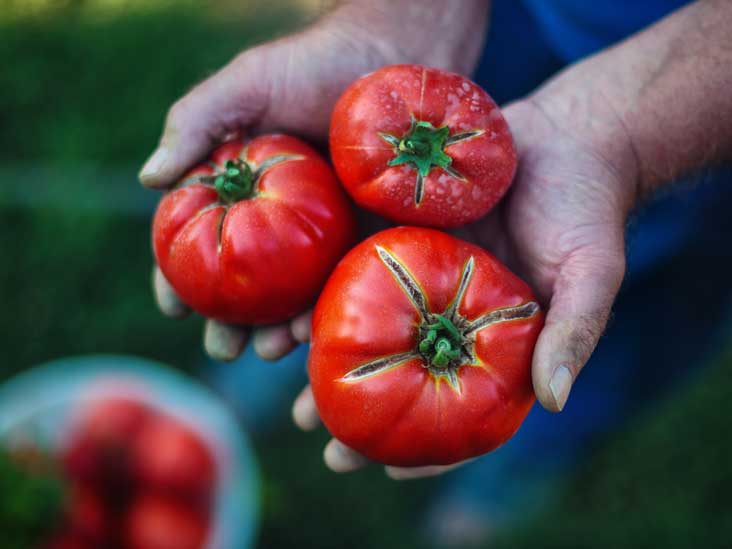Agriculture aims to produce quality and health-safe
food. Organic food and its production is a farm and food production
management system that combines environmental practices, a high level of
biodiversity, the application of high standards and the conservation of natural
resources.
Organic agriculture is regulated by strict standards and
requires that all products bearing the organic label be produced without the
use of toxic and permanent pesticides and synthetic nitrogen fertilizers,
synthetic hormones, antibiotics or other excluded practices, sewage sludge and
radiation.
Just as organic cosmetics and natural face creams are undoubtedly
the best solution for your skin, so organic and natural products are also
recommended for your daily diet. Find out below how organic food is
produced and what its main advantages are.
How is organic food processed?
Organic farmers understand that what is put into the soil
has a profound effect on what will be extracted from it. Therefore, all
those involved in organic food production rely on practices such as manual
extraction, mechanical control, mulching, crop coverage, dense planting, and
not on toxic and persistent pesticides, herbicides and synthetic nitrogen
fertilizers.
In this way, the land in which the crops are grown is
enriched. Also, this gives the plants the nutrients they need to
grow. In addition, it allows the absorption of major and micro-nutrients
such as vitamin C, resulting in higher nutrient content and often better taste,
so for example organic hemp protein powder is not only healthy but
also very tasty.
Organic food is minimally processed without artificial
ingredients. It must be processed in an operation that is completely
according to organic standards, with special steps to ensure that the organic
ingredients are not contaminated with some inorganic materials. Therefore,
you should keep in mind what the numbers on the labels of fruits and
vegetables mean in order to know which of the foods are labeled organic
and which are not.
What are the methods of organic production?
Unlike conventional, organic production is based on the
biological balance of the soil-plant-animal-human system.
In this way, the health of people and the rest of the living
world is preserved, as well as natural cycles in nature. Organic
production is a system of sustainable agriculture based on respect for all
environmental principles through the rational use of natural resources, the use
of renewable energy sources and environmental protection.
When organizing organic livestock production, preference is
given to domestic breeds, which are accustomed to and which are adapted to
local breeding conditions and are also resistant to diseases. On an
organic farm, the number of animals is related to the area, because in that
way, industrial farms and large excretion of nitrates into the soil are
avoided.
Great value of organic nutrition
National standards for organic products specify special
methods and procedures, as well as substances used in the production and
handling of crops, livestock and processed agricultural products.
The standards include a national list of approved synthetic
and banned non-synthetic substances, not only for organic production but also
for processing. The sale of organic food itself is increasing on an annual
basis.
Although there is a great momentum for organic sales, the
main reason and very often and the only one why people do not consume organic
products is their price. Organic production is becoming more and more
popular and economically important, so this type of agriculture can significantly
contribute to the development of all rural areas, and thus to the development
of agriculture in general.
Numerous benefits of organic nutrition
Taking care of the quality of the food we take into the body
undoubtedly marks the beginning of a healthy life, and certain organic foods
preserve your beauty , in addition to health. The great advantage of
organic food is actually the intake of foods without harmful
substances. But a distinction needs to be made between the words organic
and natural. Organic is not the same as natural.
The term itself organically refers to the way in which
agricultural products are grown and processed. For all such products there
is a label that guarantees that all production standards are met completely.
When it comes to the good sides of organic products, they
are reflected in the fact that these products contain less pesticides, harmful
chemicals that increase the risk of cancer. Also, organic foods are
fresher, because they do not contain preservatives, and organic production
itself is much better for the environment and reduces the percentage of
pollution.
Organic nutrition also has numerous health benefits, and
reduces the risk of many forms of cancer, such as leukemia, brain tumors, but
just consuming organic foods is one way to speed up metabolism . Children
and pregnant women should undoubtedly consume organic products because they
affect better development and strengthen immunity.
Organic nutrition is much better for human health, and the
production of organic products itself is healthier for the whole environment. In
order for more farmers to turn to organic production, it is necessary to
provide better conditions for the production process. For a start, it is
enough for individuals to turn to an organic diet and thus gradually start a
healthier lifestyle.






0 Comments